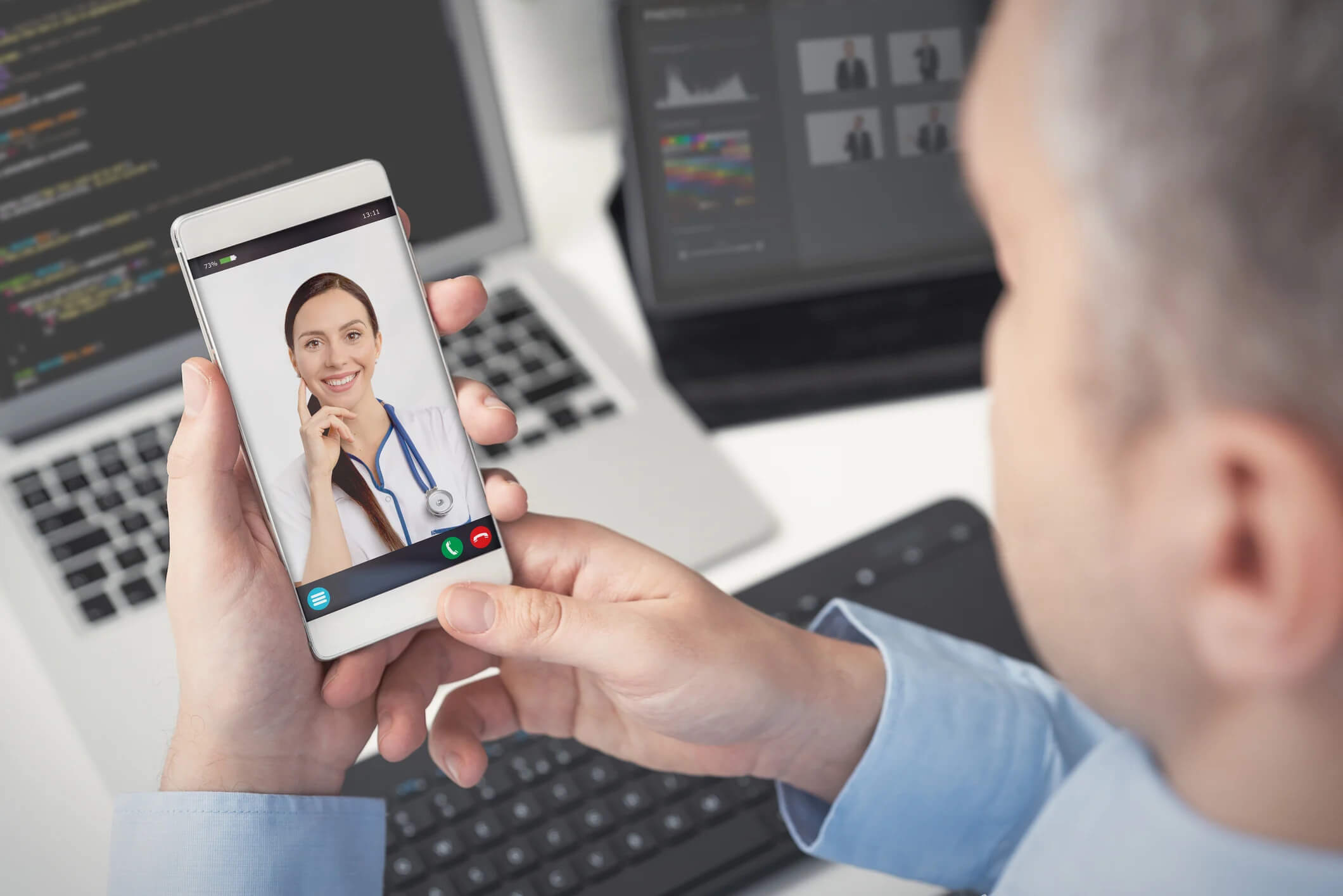Everything You Need to Know About Telehealth
- Category: Health & Wellness, News & Events
- Posted On:
- Written By: Apicha Community Health Center
As the COVID-19 pandemic continues to evolve, Apicha CHC has made numerous operational adjustments to better serve the community, while also protecting the health of its clients, staff, and patients.
One of those changes includes our implementation of telehealth -- and in this blog, we're going to explain everything you need to know about telehealth. If you're a patient of Apicha CHC and want to learn more about logging into a telehealth visit click here.
What is telehealth?
Telehealth, also known as telemedicine, is a set of means or methods for enhancing health care, public health, and health education delivery and support using telecommunications technologies. Essentially, telehealth is a virtual way of providing care to clients and staff. It can include diagnosis and management, education, and other related fields of health care.

What are different forms of telehealth?
Telehealth isn't one singular method of providing virtual care. There are numerous forms of telehealth that can be provided by a medical professional. Keep in mind, that not every medical provider offers telehealth. But, as medical technology and health care advance, options to providing care continue to grow.
1. Live video:
Live video is two-way interaction between a person (patient, caregiver, or provider) and a provider using audiovisual telecommunications technology. Video devices can include videoconferencing units, peripheral cameras, videoscopes, or web cameras. This means computers that have video and microphone can be used. Live video is often used for consults, check-ins, and health education.
2. Mobile health:
Mobile health is a relatively new aspect of technology-enabled health care. It is the provision of health care services and personal health data via mobile devices, such as cell phones, tablet computers, and PDAs.

3. Remote patient monitoring:
Remote patient monitoring (RPM) uses digital technologies to collect medical and other forms of health data from individuals in one location and electronically transmit that information securely to health care providers in a different location for assessment and recommendations. This type of service allows a provider to continue to track healthcare data for a patient once released to home or a care facility, reducing readmission rates.
Monitoring programs can collect a wide range of health data from the point of care, such as vital signs, weight, blood pressure, blood sugar, blood oxygen levels, heart rate, and electrocardiograms.
4. Store-and-forward
Store-and-forward technologies allow for the electronic transmission of medical information, such as digital images, documents, and pre-recorded videos through secure email communication. As compared to a real-time visit, this service provides access to data after it has been collected, and involve communication tools such as secure email.
These technologies provide important benefits to patients and providers. Some of these benefits include:
- Patients can get timely specialty care without needing to travel beyond the location of their primary care providers;
- Wait times for specialty care are lessened, especially in areas with shortages of medical specialists;
- Primary care providers and medical specialists can review patient cases, regardless of their respective locations;
- Medical specialists can review patient cases when it is convenient for them;
- The Store and Forward process can overcome language and cultural barriers.
What are benefits of telehealth?
There are many benefits of telehealth, one of the main reasons being that it can better connect patients to their providers. This can improve both the care provided and overall health of patients. By providing a new form of access and service, this benefits communities as a whole.
- Better health
- No transportation time or costs
- Less time in the waiting room
- Less chance of catching a new illness
- Better access to specialists
Information derived from The National Telehealth Policy Resource Center.
How Apicha CHC can help you
As part of our ongoing efforts to help contain the spread of COVID-19, we are now offering video visits with Apicha CHC providers, as an alternative to office visits. To learn more about televisits at Apicha CHC, read more here.
